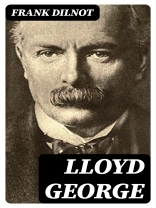In ‘Lloyd George, ‘ Frank Dilnot presents a meticulous exploration of the life and political career of one of Britain’s most polarizing prime ministers during the early 20th century. Dilnot employs a balanced narrative style that interweaves personal anecdotes and historical facts, capturing the complexity of David Lloyd George’s character and his significant policies. The book delves into the socio-political climate of Edwardian Britain and the aftermath of World War I, contextualizing Lloyd George within the framework of liberalism and the evolving British state, making it a pivotal contribution to modern biographical literature. Frank Dilnot, an esteemed historian and political writer, draws upon a wealth of primary sources, including letters and parliamentary records, to provide a nuanced portrayal of Lloyd George. His academic background in history and his previous works focused on British political figures equipped him to undertake this extensive study. Dilnot’s keen insights reveal the motivations behind Lloyd George’s decisions, offering readers a rich understanding of the complexities he faced during a time of great change. This book is highly recommended for anyone interested in British political history, particularly those eager to understand the intricacies of leadership amidst societal upheaval. Dilnot’s thorough research and engaging prose not only educate but also provoke reflection on the lasting impact of Lloyd George’s legacy in contemporary politics.
A propos de l’auteur
Frank Dilnot (dates unknown) was an early 20th-century author and journalist who provided his contemporaries with an insightful glimpse into the political landscapes of his time. His work titled ‘Lloyd George’ signifies his capacity to delve into the intricate world of British politics, capturing the essence of one of the most influential statesmen of the era, David Lloyd George. Dilnot’s literary style typically involved a clear, analytical approach to biographical writing, intertwined with a narrative that engaged readers in the complex dynamics of political power and personality. While Dilnot may not have been as prolific as some of his peers, the works he did produce have contributed to the historical understanding of political figures and have served as resources for students of history and political science. The scarcity of information about his life outside his written works suggests that Dilnot preferred to keep a low profile, allowing his writings to speak on his behalf. Nevertheless, ‘Lloyd George’ stands as evidence of Dilnot’s thoughtful consideration of political leadership and its impact at the dawn of contemporary British history.












